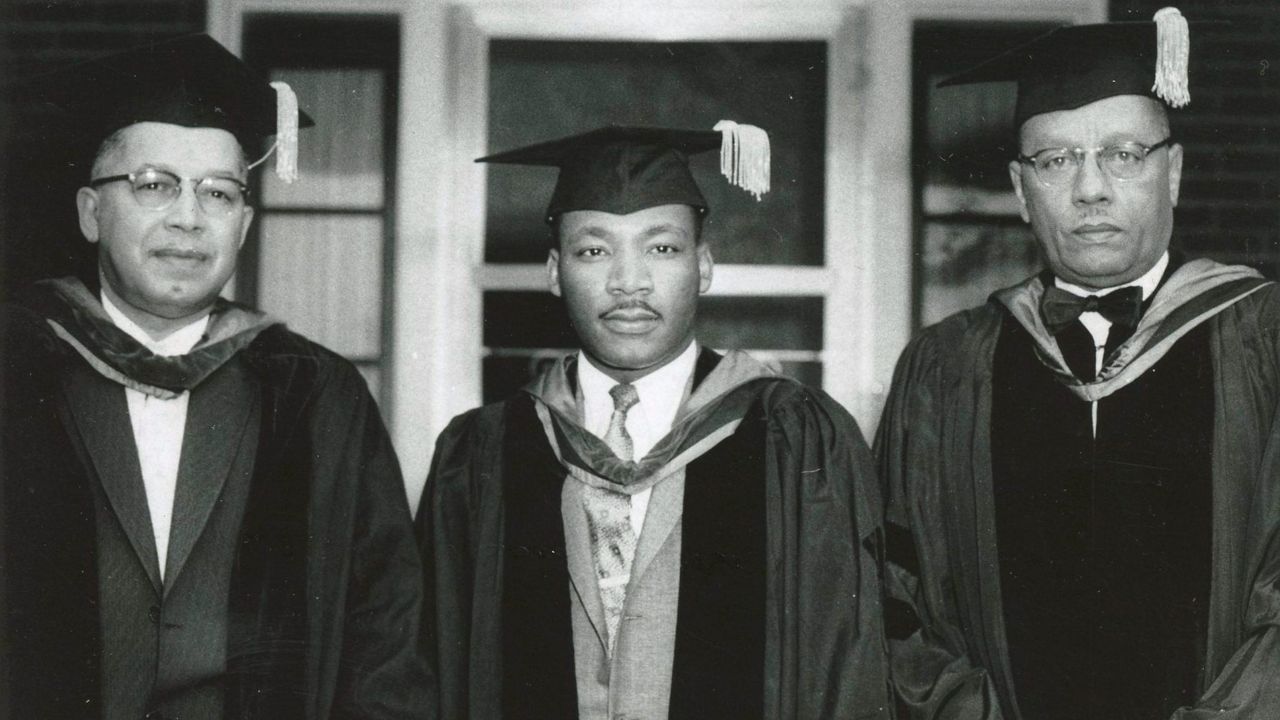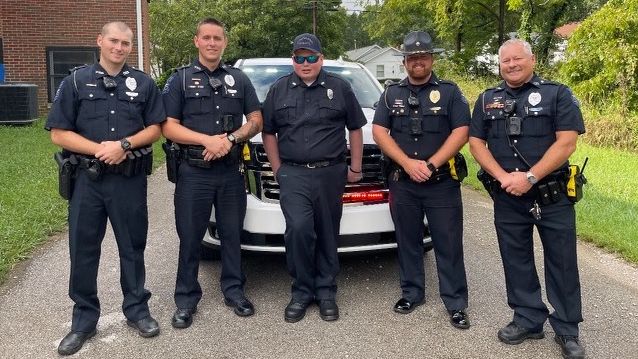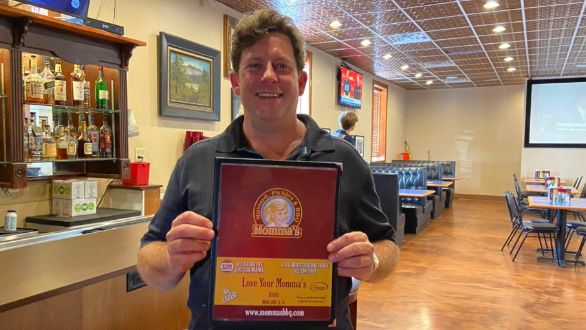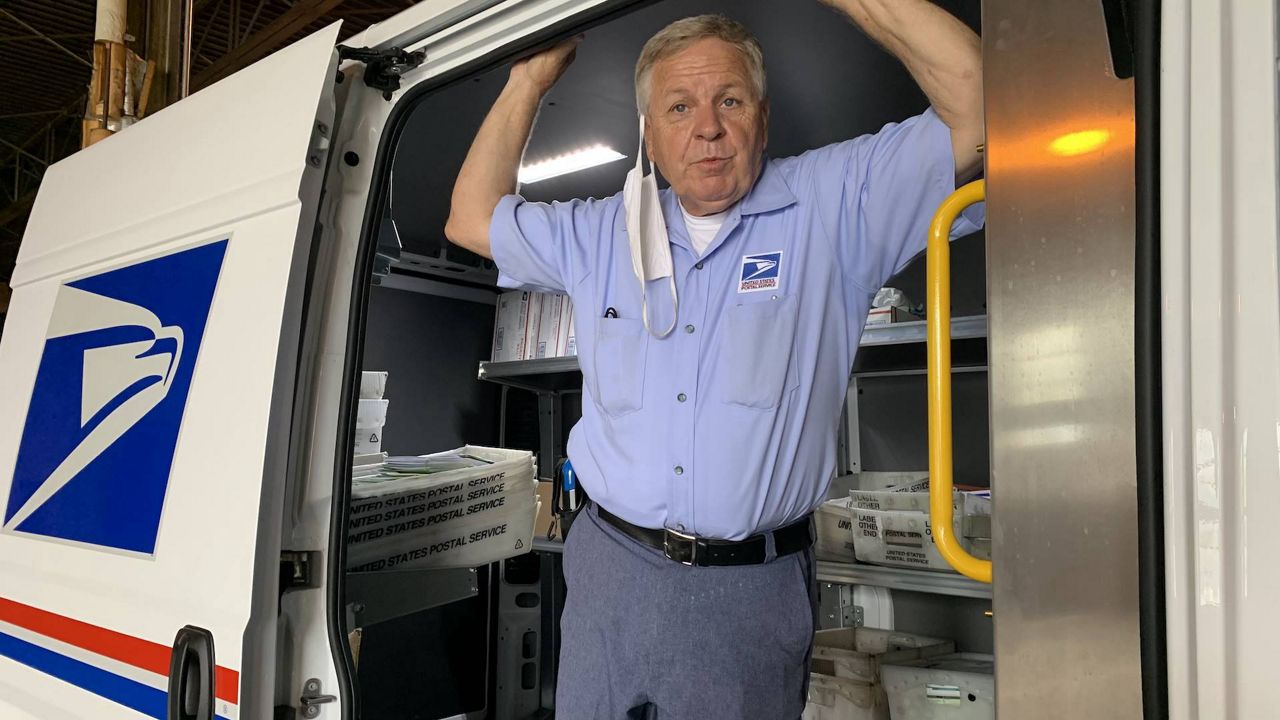LEXINGTON, Ky. — The Rev. Dr. Martin Luther King Jr. is known more for his civil rights activism in the Deep South and the famous “I Have a Dream” speech in Washington, D.C., in 1963. While he did not spend ample time in Kentucky, King did often visit in the 1950s and 1960s, notably Louisville, where his brother, A.D. King, was pastor of Zion Baptist Church.
What You Need To Know
- King's brother was pastor at Louisville church
- Baseball player Jackie Robinson joined King at Frankfort march
- King was speaker at Kentucky State graduation in 1957
- Cited Louisville-born woman in famous letter
“His brother lived in Louisville for a few years in the 1960s, and he visited several times while his brother lived here,” said Amanda Briede, curator of the Frazier History Museum in Louisville. “He did come to Kentucky a couple of times before his brother lived here.”
In 1957, then 28-year-old King delivered the commencement speech to graduates at Kentucky State University in Frankfort. According to an article in The Courier-Journal, the event had to be moved to Frankfort High School’s gymnasium to accommodate the large crowd.
King and baseball legend Jackie Robinson came to Frankfort on March 5, 1964, and led 10,000 people to peacefully rally at the Capitol building calling for a “good public accommodations bill” to end segregation and discrimination in stores, restaurants, theaters and other businesses.
The Allied Organization for Civil Rights (AOCR) coordinated the march. AOCR members included officers Frank Stanley Jr., editor of The Louisville Defender; Dr. Olof Anderson, Synod Executive of the Presbyterian Church; and a young Georgia Davis Powers, who later became the first Black person and the first woman elected to the Kentucky State Senate in 1967, states this was the beginning of her civil rights activism. Folk singers and civil rights activists Peter, Paul and Mary also performed at the rally.
Briede recently completed research for two exhibits at the Frazier Museum called “West of Ninth: Race, Reckoning, and Reconciliation” and “What is a Vote Worth? Suffrage Then and Now.” Briede said she did set out to research King specifically, but often found his story woven into the history of the Commonwealth.
“It is a true highlight of my job to talk to people, like Charlene Hampton Holloway, who was arrested at age 12 for participating in Civil Rights protests in Louisville,” Briede said. “She told me how impactful it was when she got to meet Dr. King and hear him speak in West Louisville when she was a child.”
The Rev. Charles Elliott Jr., 87, is pastor of King Solomon Missionary Baptist Church in Louisville. Born in Alabama, Elliott came to Louisville in 1952 and said he helped bring King to the march in Frankfort when “many ministers were afraid to do so.” Elliott has for decades led an annual prayer event honoring King.
King also had an indirect connection with Kentucky. In his 1963 “Letter from a Birmingham Jail,” he praised six white writers, stating, “Some…have written about our struggle in eloquent and prophetic terms.” One of the six writers named was Louisville-born Anne Braden, who fought for civil rights for more than 50 years.









